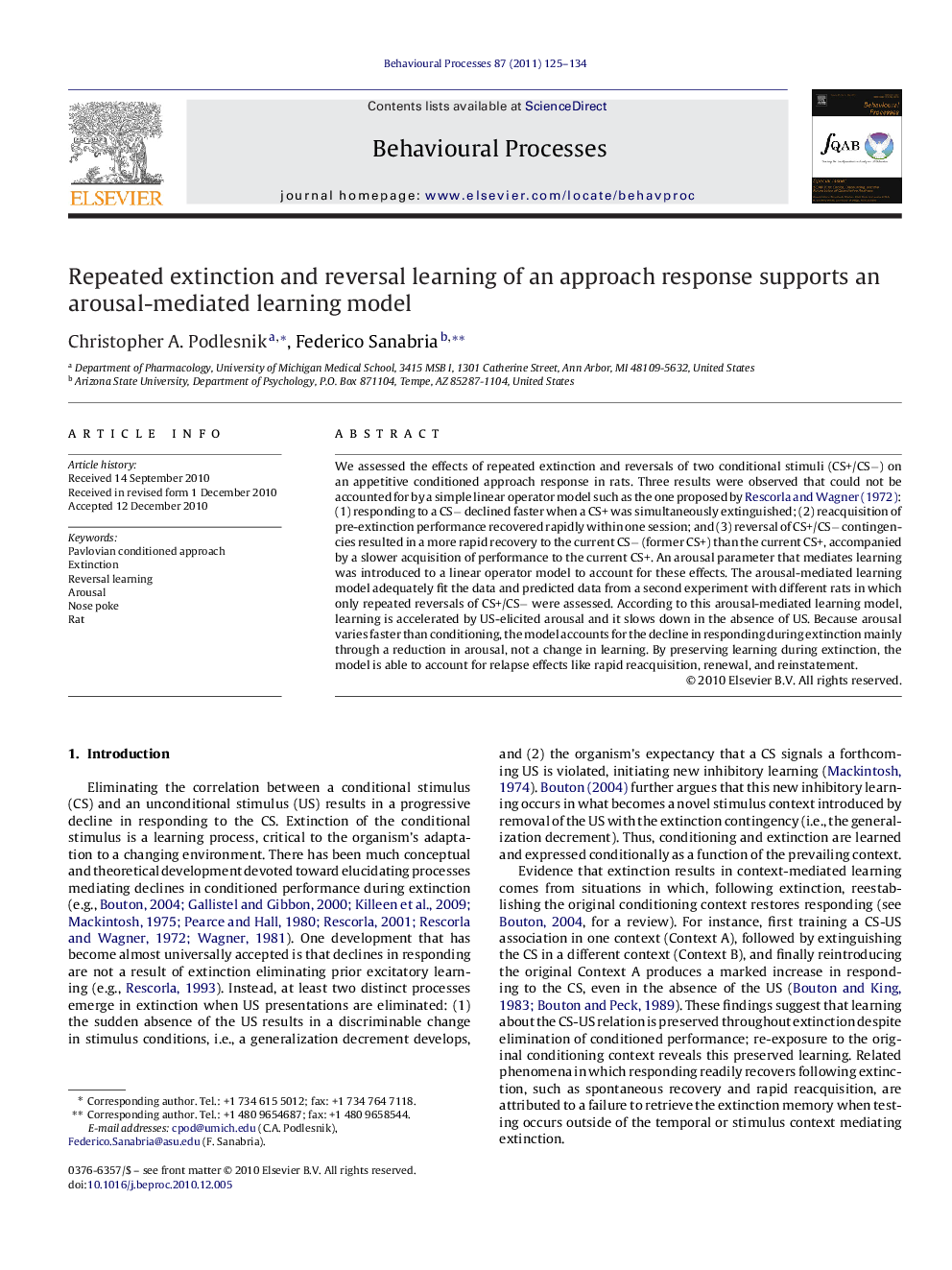| کد مقاله | کد نشریه | سال انتشار | مقاله انگلیسی | نسخه تمام متن |
|---|---|---|---|---|
| 2427057 | 1105939 | 2011 | 10 صفحه PDF | دانلود رایگان |

We assessed the effects of repeated extinction and reversals of two conditional stimuli (CS+/CS−) on an appetitive conditioned approach response in rats. Three results were observed that could not be accounted for by a simple linear operator model such as the one proposed by Rescorla and Wagner (1972): (1) responding to a CS− declined faster when a CS+ was simultaneously extinguished; (2) reacquisition of pre-extinction performance recovered rapidly within one session; and (3) reversal of CS+/CS− contingencies resulted in a more rapid recovery to the current CS− (former CS+) than the current CS+, accompanied by a slower acquisition of performance to the current CS+. An arousal parameter that mediates learning was introduced to a linear operator model to account for these effects. The arousal-mediated learning model adequately fit the data and predicted data from a second experiment with different rats in which only repeated reversals of CS+/CS− were assessed. According to this arousal-mediated learning model, learning is accelerated by US-elicited arousal and it slows down in the absence of US. Because arousal varies faster than conditioning, the model accounts for the decline in responding during extinction mainly through a reduction in arousal, not a change in learning. By preserving learning during extinction, the model is able to account for relapse effects like rapid reacquisition, renewal, and reinstatement.
Research highlights▶ Repeated extinction and reversals of conditional stimuli were assessed. ▶ An arousal parameter mediating learning was introduced to a linear operator model. ▶ Learning is accelerated by US-elicited arousal and slows in the absence of US. ▶ Declines during extinction are reductions in arousal, not a change in learning. ▶ Model adequately predicted reversal learning performance in another experiment.
Journal: Behavioural Processes - Volume 87, Issue 1, May 2011, Pages 125–134